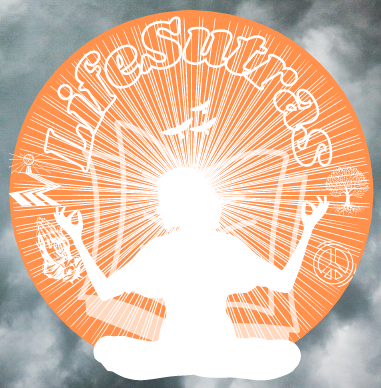Last night, around 1 am, I was sleeping and woke up by the soft sound of a rainy drizzle. The soothing rhythm of raindrops against my window was a delightful music that called me. I couldn’t resist the temptation to experience the first rain of the season. As I opened the window, the cold air rushed in, behaving like a playful monkey swinging from tree to tree. It danced around my face, bringing with it the refreshing scent of rain-soaked earth.
I stood there for a good 15-20 minutes, completely lost in the experience. The air felt like a gentle loving touch of nature on my skin, and the sound of the rain was a peaceful music for my soul. It was a moment of pure satisfaction, a deep connection with nature that filled me with peace and contentment. This simple yet profound experience made me reflect the bond we share with the Earth and the environment.
The Deep Bond Between Humans and Nature
Have you ever wondered why rain brings such joy and satisfaction? Why do we feel a sense of peace and renewal during a rainfall? This bond with nature is not just an emotional experience but also deeply rooted in our traditions and practices.
Indian Traditions and Environmental Worship
In India, the relationship with nature goes beyond appreciation; it is deeply spiritual and deeply seated in daily life. We see nature not as a resource to be used but as a sacred entity to be revered and protected. This reverence is reflected in various traditions and practices.
Sun Worship: Surya Namaskar
Every morning, millions of Indians perform Surya Namaskar, or Sun Salutation. This ancient practice is a way to show gratitude to the Sun, which is considered a source of life and energy. The Sun is seen as a deity, Surya, who provides light, warmth, and sustenance. By bowing down to the Sun, we acknowledge our dependence on this vital source of energy and express our gratitude for its blessings.
The Sacred Tulsi Plant
In almost every Indian household, you will find a Tulsi (holy basil) plant. Tulsi is not just a plant; it is revered as a goddess. It is believed to have divine properties and is worshipped daily. Tulsi is known for its medicinal properties and is considered a purifier of the environment. It symbolizes the integration of health, spirituality, and environmental consciousness.
Worship of Snakes, Oxen, and Varun Dev
Indians also worship various animals and elements of nature, recognizing their importance in the ecosystem. Snakes are worshipped during Nag Panchami, symbolizing respect for all creatures, even those we might fear. The ox is honoured during festivals like Pongal and Makar Sankranti, acknowledging its role in agriculture and sustenance.
Varun Dev, the god of water, is revered to ensure the availability of water, which is essential for life. This worship signifies respect and gratitude for water, a precious resource that sustains all living beings.
The Science Behind Environmental Worship
These traditions are not just cultural practices but are deeply rooted in science and environmental awareness. Worshipping nature and its elements encourages conservation and sustainable living.
Promoting Environmental Awareness
By worshipping the Sun, Tulsi, and other elements of nature, we cultivate a sense of respect and responsibility towards the environment. This respect translates into actions that protect and preserve nature. For instance, planting and caring for Tulsi plants increases greenery and helps purify the air.
Understanding Ecosystem Balance
Worshipping animals like snakes and oxen helps maintain the balance of the ecosystem. Snakes play a crucial role in controlling the population of pests and rodents. Honouring them promotes their protection and helps maintain ecological balance. Similarly, recognizing the importance of oxen in agriculture encourages sustainable farming practices.
Water Conservation
Reverence for Varun Dev highlights the importance of water conservation. By acknowledging water as a divine gift, people are more likely to use it judiciously and avoid wastage. This ancient practice promotes sustainable use of water resources, ensuring availability for future generations.
The Spiritual Connection
Beyond the scientific and environmental aspects, there is a deep spiritual connection with nature in Indian traditions. This connection cherishes a sense of belonging and harmony with the universe. When we pray to the Sun, nurture a Tulsi plant, or celebrate nature’s elements, we reinforce our bond with the environment and recognize our place within the larger web of life.
As I stood by my window last night, feeling the first rain on my face, I was reminded of the profound connection we share with nature. This connection is not just a source of joy and satisfaction but also a reminder of our responsibility to protect and preserve the environment.
Indian traditions of worshipping nature elements are a testament to the wisdom of our ancestors, who understood the importance of living in harmony with nature. By following these practices, we not only honour our heritage but also contribute to the well-being of our planet.
In a world where environmental challenges are becoming increasingly severe, let us draw inspiration from these traditions and strive to live sustainably. Let us recognize the sacredness of nature and our duty to protect it. After all, the rain that brings us so much joy is a gift from the Earth, and it is our responsibility to ensure that this gift continues to bless future generations.
Are you fascinated by the connection between nature and Indian traditions? Our website offers a wealth of information on how Indian rituals and customs promote environmental awareness, sustainable living, and spiritual well-being. Explore our articles, join our community, and enrich your life with the timeless wisdom of our ancestors.
Visit us at Lifesutrasket and start your journey of discovery and enlightenment.
Thank you for being here!










































